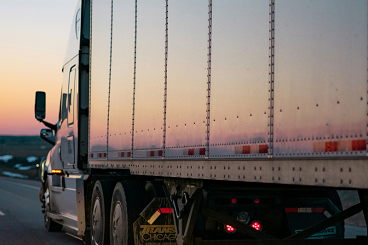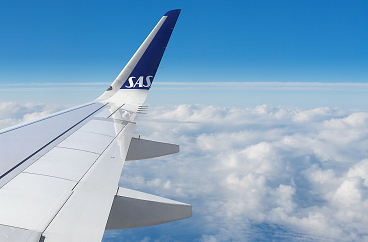Add sustainable aviation fuel - You choose the amount
At SAS Cargo we want to make it easy for our customers to transport more sustainably and fossil free. Therefore, we have developed a Corporate Sustainability Program, where you as corporate customer, are able to replace fossil fuel with Sustainable Aviation Fuel (SAF) on a larger scale.
SAF is a biofuel used to power aircraft that has similar properties to conventional jet fuel but with a smaller carbon footprint. The use of SAF is an important step on the road to zero-emission flights.
The chemical and physical characteristics of sustainable aviation fuels are almost identical to those of conventional jet fuel, meaning the two can be safely blended together. At present, legislation for commercial aviation states that biofuel must be blended with conventional jet fuel up to a maximum of 50%.
The SAF delivered to SAS is certified according to the applicable regulations.
The SAF is mixed at selected airports and is in integrated part of the infrastructure at the airport.
Did you know that
SAS has one of Europe’s most fuel efficient and modern fleet.
SAS aims to fossil free domestic flights by 2030 and already by 2025, 25% less emissions vs. 2005.
SAS makes no profit on the SAF agreement transactions, and it is added to the amount of SAS that SAS has already committed to buy.
About SAF
Fuel produced from sustainable sources reduces the amount of climate-impacting CO₂ emissions dramatically.
Biofuel, an example of SAF, is made by using a variety of waste products, along with agricultural and forestry residues.
The biofuel delivered to SAS is certified according to the applicable regulations.
Buying SAF in bulk
We now welcome our customers on board the journey toward a more sustainable flight by making it possible to buy SAF. A perfect alternative for customers who want to make their flights more sustainable – and a great opportunity for our customers to reduce their scope 3 emissions. Unrelated to any specific transport, we can enter into an agreement of SAF for use on flights in SAS’ network. The CO₂ reductions will be stated in a SAS & SAS supplier certificate.
The process of buying SAF is quite simple. Please fill in your request on the right and following process and dialogue will start.
- Dialogue about a required amount (volume) in SAF ton - or ton CO₂ you want to reduce emissions for
- Upon agreement; purchase + receipt
- Time of SAF delivery is part of dialogue
- SAF certificate from SAS and Supplier (upon SAF Delivery)
- 3rd party verification (of no double counting) will be available annually on the Portal
Together, we can create a more sustainable aviation.
.jpg?h=350&iar=0&w=350)
.jpg?h=245&iar=0&w=368)

